Ditapis dengan

Handbook of Criminal Justice Evaluation
- Edisi
- First Published
- ISBN/ISSN
- 0-8039-1052-5
- Deskripsi Fisik
- 693 pgs.; 23,5 cm.
- Judul Seri
- -
- No. Panggil
- 364.072 HAN h
- Edisi
- First Published
- ISBN/ISSN
- 0-8039-1052-5
- Deskripsi Fisik
- 693 pgs.; 23,5 cm.
- Judul Seri
- -
- No. Panggil
- 364.072 HAN h

Social Justice and Ashrams
- Edisi
- First Published
- ISBN/ISSN
- -
- Deskripsi Fisik
- 60 pgs.; 18 cm.
- Judul Seri
- -
- No. Panggil
- 303.372 VAN s
- Edisi
- First Published
- ISBN/ISSN
- -
- Deskripsi Fisik
- 60 pgs.; 18 cm.
- Judul Seri
- -
- No. Panggil
- 303.372 VAN s
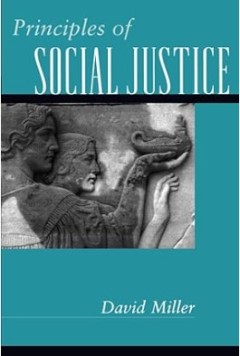
Principles of Social Justice
Social justice has been the animating ideal of democratic governments throughout the twentieth century. Even those who oppose it recognize its potency. Yet the meaning of social justice remains obscure, and existing theories put forward by political philosophers to explain it have failed to capture the way people in general think about issues of social justice. This book develops a new theory. …
- Edisi
- First Published
- ISBN/ISSN
- 0-674-70628-5
- Deskripsi Fisik
- xi + 337 pgs.; 23,5 cm.
- Judul Seri
- -
- No. Panggil
- 303.372 MIL p

Theology in A New Key : Responding to Liberation Themes
- Edisi
- First Published
- ISBN/ISSN
- 0-664-24204-9
- Deskripsi Fisik
- 212 pgs.; 20,5 cm.
- Judul Seri
- -
- No. Panggil
- 261.8 BRO t
- Edisi
- First Published
- ISBN/ISSN
- 0-664-24204-9
- Deskripsi Fisik
- 212 pgs.; 20,5 cm.
- Judul Seri
- -
- No. Panggil
- 261.8 BRO t
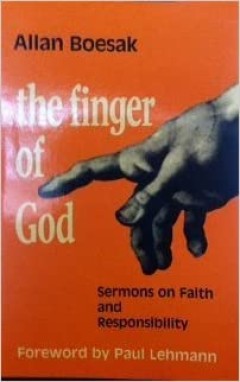
The Finger of God : Sermons of Faith and Responsibility
- Edisi
- First Published
- ISBN/ISSN
- 0-88344-135-7
- Deskripsi Fisik
- xii + 100 pgs.; 21 cm.
- Judul Seri
- -
- No. Panggil
- 261.80968 BOE f
- Edisi
- First Published
- ISBN/ISSN
- 0-88344-135-7
- Deskripsi Fisik
- xii + 100 pgs.; 21 cm.
- Judul Seri
- -
- No. Panggil
- 261.80968 BOE f
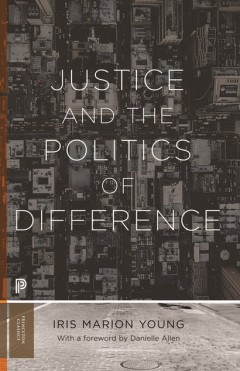
Justice and the Politics of Difference
Justice and the Politics of Difference challenges the prevailing reduction of social justice to distributive justice, critically analyzing basic concepts underlying most theories of justice such as impartiality, formal equality, and the unitary moral subjectivity. Drawing on the experiences and concerns of social movements created by marginalized and excluded groups, Iris Marion Young shows how…
- Edisi
- First Published
- ISBN/ISSN
- 0-691-07832-7
- Deskripsi Fisik
- vii + 286 pgs.; 21 cm.
- Judul Seri
- -
- No. Panggil
- 320.011 YOU j

Social Justice Reconsidered: The Problem Of Appropriate Precision in a Theory…
Social Justice Reconsidered is an attempt to refocus debate about justice. David Mapel argues that some of the more ambitious theories of justice have failed to establish themselves because they seek too high a degree of precision, because they have tried to provide criteria for ranking all possible (or feasible) social systems according the the justice of their distributions.
- Edisi
- First Published
- ISBN/ISSN
- 0-252-01598-3
- Deskripsi Fisik
- x + 169 pgs.; 24 cm.
- Judul Seri
- -
- No. Panggil
- 320.011 MAP s

The Liberal Theory of Justice
- Edisi
- First Published
- ISBN/ISSN
- 0-19-875032-3
- Deskripsi Fisik
- x + 168 pgs.; 21 cm.
- Judul Seri
- -
- No. Panggil
- 320.512 BAR l
- Edisi
- First Published
- ISBN/ISSN
- 0-19-875032-3
- Deskripsi Fisik
- x + 168 pgs.; 21 cm.
- Judul Seri
- -
- No. Panggil
- 320.512 BAR l
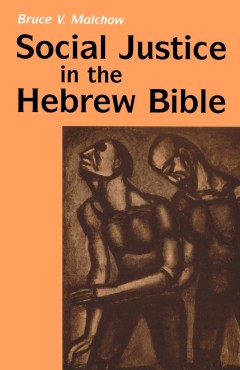
Social Justice in the Hebrew Bible
This book examines How Israel utilized the social justice thought of other Near Eastern peoples to face its own justice crises. It analyzes the Hebrew Bible's statements about this issue in its law codes, prophetic books, psalms, narrative works, and wisdom literature. The basis for this analysis is Near Eastern sayings on justice and the social setting of Israel's justice concern.
- Edisi
- -
- ISBN/ISSN
- 0-8146-5523-8
- Deskripsi Fisik
- xv + 83 hlm.; 21 cm
- Judul Seri
- -
- No. Panggil
- 241.6220901 MAL s
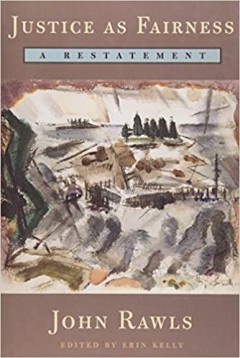
Justice as Fairness: A Restatement
This book originated as lectures for a course on political philosophy that Rawls taught regularly at Harvard in the 1980s. In time the lectures became a restatement of his theory of justice as fairness, revised in light of his more recent papers and his treatise Political Liberalism (1993). As Rawls writes in the preface, the restatement presents "in one place an account of justice as fairness …
- Edisi
- First Published
- ISBN/ISSN
- 0-674-00510-4
- Deskripsi Fisik
- xiii + 214 hlm.; 24 cm.
- Judul Seri
- -
- No. Panggil
- 320.011 RAW j
 Karya Umum
Karya Umum  Filsafat
Filsafat  Agama
Agama  Ilmu-ilmu Sosial
Ilmu-ilmu Sosial  Bahasa
Bahasa  Ilmu-ilmu Murni
Ilmu-ilmu Murni  Ilmu-ilmu Terapan
Ilmu-ilmu Terapan  Kesenian, Hiburan, dan Olahraga
Kesenian, Hiburan, dan Olahraga  Kesusastraan
Kesusastraan  Geografi dan Sejarah
Geografi dan Sejarah